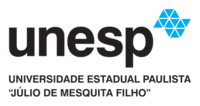Black and african students: individuals present, absent voices
DOI:
https://doi.org/10.18675/1981-8106.vol25.n49.p374-389Keywords:
Africans, Racial Quotas, Affirmative Action Policies.Abstract
This paper aims to describe and analyze some data from an extension project and research titled “The narratives of the self and the effects of affirmative action policies to black students who need of affirmative action and Africans." We have as central issues of our work the following questions: What do the students who need of affirmative action and not unitholders know about the quotas? What do the various African groups who are at university know about the quotas and their experience as a student in the Alagoas’ State? In methodological terms, we use some procedures and instruments of action research to raise our diagnostic procedures and social intervention. It is concluded after investigation that the affirmative action policies in college should be the subject of constant debate whether in academia or in society. There is ignorance on the part of students who need of affirmative action, not unitholders and africans student about the racial quotas, the policies of affirmative action and the collective human rights achievements and socio-historical character.Downloads
Additional Files
Published
How to Cite
Issue
Section
License
Authors who publish in this journal agree to the following terms:
a) Authors assign copyright to the journal, with the work simultaneously licensed under the Creative Commons Attribution License that allows sharing of the work with acknowledgment of authorship and publication in this journal.
b) The policy adopted by the Editorial Committee is to assign copyright only after a period of 30 months from the date of publication of the article. After this time, authors interested in publishing the same text in another work must send a letter to the Editorial Committee requesting the release of the assignment of copyright and wait for a response.
c) This journal provides public access to all its content, since this allows greater visibility and reach of published articles and reviews. For more information on this approach, visit the Public Knowledge Project, a project that developed this system to improve the academic and public quality of research, by distributing OJS as well as other software to support the public access publication system to academic sources. The names and email addresses on this website will be used exclusively for the purposes of the journal and will not be available for other purposes. This journal provides open any other party  This work is licensed under a Creative Commons License
This work is licensed under a Creative Commons License










